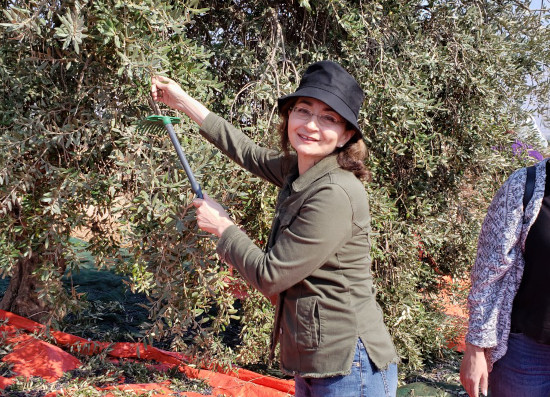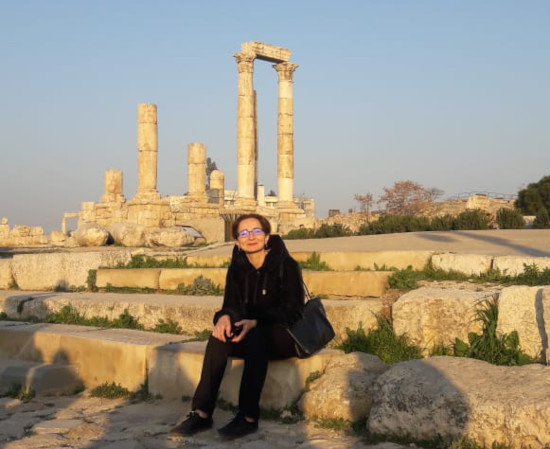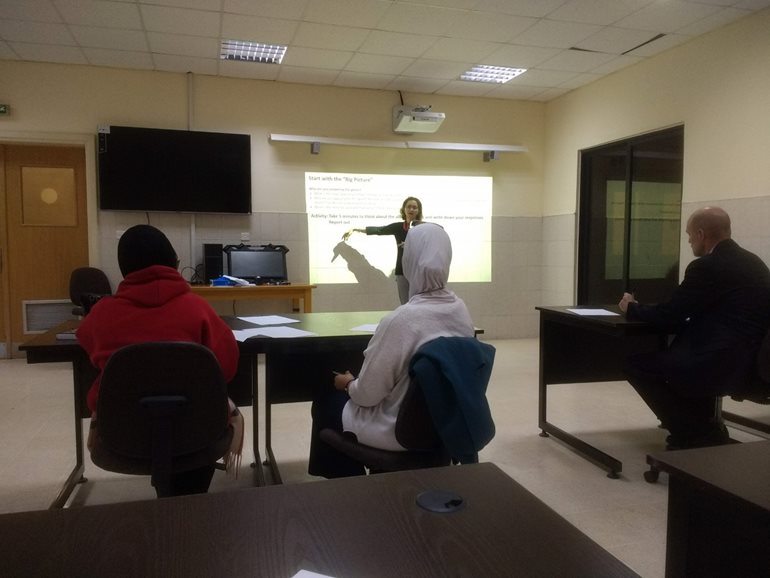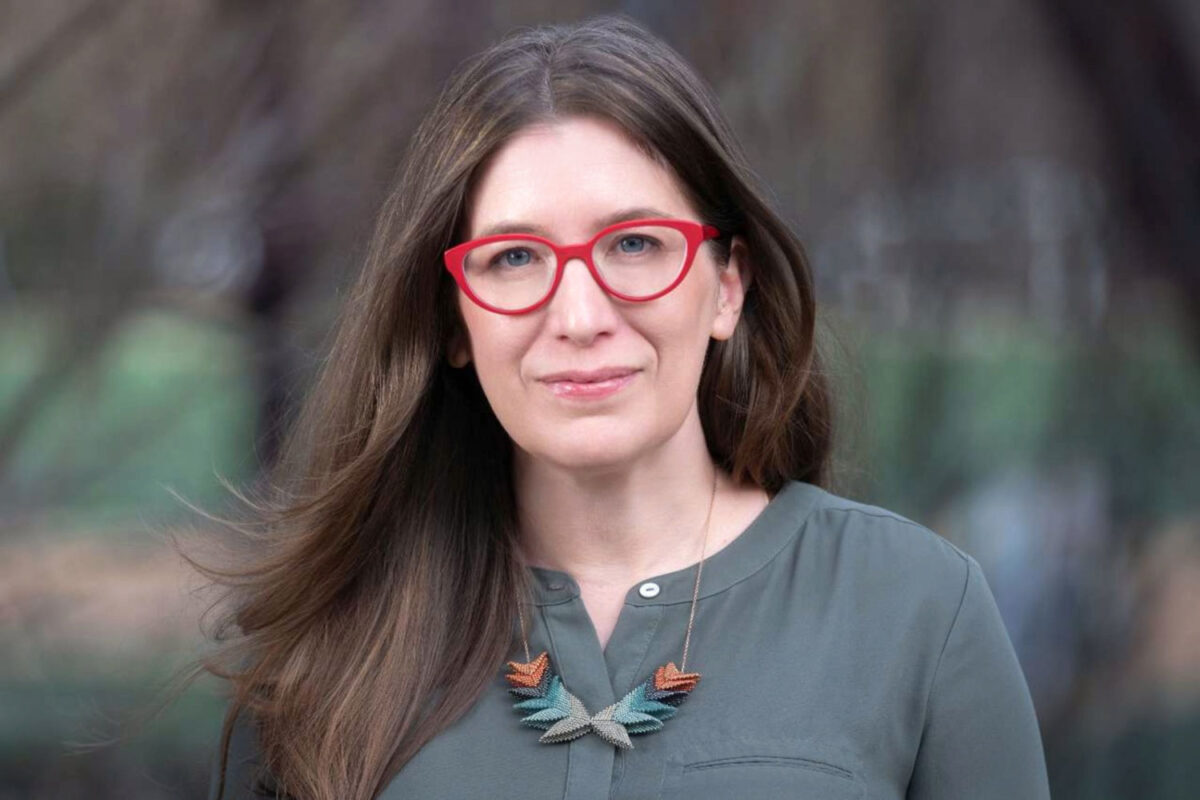
Dr. Salwa Al-Noori, associate teaching professor in the University of Washington Bothell’s School of STEM, recently completed a five-month Fulbright Scholar program at Hashemite University in Zarqa, Jordan. While teaching two STEM courses and immersing herself in Jordanian life, she also sought to hone culturally responsive teaching methods for her UW Bothell students of Middle East and North African origin.
Her desire to better serve students from the MENA region is both practical and personal, she said. The population at UW Bothell includes a large number of MENA students who either immigrated with their families or were born in the United States to immigrant parents. Al-Noori also works with this student population consistently as a faculty adviser for the Student Association for Immigrants and Refugees on campus, a post she fills because she understands and relates to their experiences.
Originally from Iraq, Al-Noori immigrated to the U.S. decades ago as an international student to complete her undergraduate education.
“It’s important when we’re thinking about diversity, equity and inclusion that we understand who our students are,” she said. “I was interested in making sure that — in my own teaching, research and scholarly work and my work as a faculty member — I am including culturally responsive teaching that addresses the experiences of MENA students.”
Well-positioned in Jordan
In her quest to better serve students from the MENA region, Al-Noori intentionally chose Jordan as a homebase for her studies when she applied for a teaching Fulbright in September 2021.

She’d been to Jordan, which shares a border with Iraq, before. Still, she said she’d never been to the country in a teaching context and so was eager to learn how teachers there approach their diverse student population, many of whom are immigrants.
Al-Noori also knew she would have access to a plethora of historical and cultural sites — including Petra, the Roman Citadel and more — that would help her to learn more deeply and authentically about regional cultures and history.
“I selected Jordan because it’s geographically, as well as socially, well-positioned to allow me to learn about culturally responsive teaching for MENA students,” said Al-Noori. “There are lot of immigrants and refugees in Jordan, so that meant I would be also experiencing and interacting with people from throughout the region.”
A two-way journey
In March 2022, Al-Noori learned that she had been selected for a Fulbright, which she began officially in September 2022.
While staying in the city of Amman, Al-Noori rode the bus to and from her placement at Hashemite University in Zarqa each day, teaching an undergraduate course on functional anatomy and a graduate course on neuropharmacology. She also collaborated with faculty in the School of Medicine on a newly established medical education center.
As she lived and taught in the country, she studied how other teachers created active and inclusive spaces that support teaching and learning in an environment conducive to engaging all students.
“What I was looking at is pedagogy in the sense that I was learning about and sharing different teaching approaches and tools. I was also looking at how things are done in another educational system — and sharing what we do at UW Bothell with teachers and students in Jordan,” said Al-Noori. “I went under the title of ‘scholar,’ but so much learning happened for me over there.”
Hearing student needs
As she learned about the challenges that students and professors in Jordan faced, she was struck by how similar they were to those faced by students and faculty at UW Bothell, particularly when it came to adapting to changes on campus as the pandemic evolved.

“Having to modify things that were traditionally done a certain way in person to suit a hybrid or fully virtual component were challenges they faced as well,” said Al-Noori. “And the students, like our students, really missed being on campus and were craving those in-person interactions.”
Her experience in Jordan also enhanced Al-Noori’s understanding of how language impacts an international student’s learning. For instance, although Arabic is the official language in Jordan, students are taught in English in many university programs. This means that students are typically required to switch back and forth between the two languages to fully comprehend a topic — much like MENA students at UW Bothell.
“I recognize the challenges this creates,” said Al-Noori. “Language influences our perspective, and certainly if you’re going into something and it’s not quite your native tongue, you always feel like, ‘Am I really understanding everything to the same degree? Are there nuances in language or cultural terms I’m not aware of?’”
Leveraging two languages
Such questions and concerns in mind, Al-Noori said she worked to be more upfront with students about how their understanding was influenced by the language she used.
“Right off the bat, I went into class in Jordan and said, ‘My instruction is in English, but if there are things that you’re not clear about, ask me.
“‘And at the same time, if there’s something — terms, things like that — in Arabic that I don’t get, I’m here to learn from you, too.’”
Being transparent about the power of language in instruction made switching between different languages and even Arabic dialects a fun discussion in her class, Al-Noori said. It also underscored for her the importance of meeting multilingual MENA students halfway, rather than forcing them to conform exclusively to English and other Western ways of learning.
Optimal learning spaces
Al-Noori returned from her Fulbright at the end of January with a deeper understanding of the culture and people of the MENA region, and with important insights into the way MENA students learn.
She also brought back some new ideas on how to honor and serve students, particularly how important it is to make an active effort to understand who they are.
For instance, Al-Noori believes in asking students in her classes to serve as ambassadors. If a student is struggling with English instruction, she may pair that student with another who understands that native language and culture so they can help each other. In this way, she said, students are not singled out for their differences but instead are invited to connect with community.
It’s a subtle shift, but one that can build rather than tear down a student’s confidence and ability to excel.
“Making sure when we’re in the classroom that we are cognizant of our students, asking who they are and asking what they need, is important,” said Dr. Al-Noori. “Ultimately as educators, our aim is to promote optimal learning spaces.”
Collaborative online offerings
Al-Noori is now actively exploring ways to collaborate with the new colleagues and collaborators she met. For starters, she and partner faculty at Hashemite University are planning a Collaborative Online International Learning course for the summer to encourage learning and exchange between their students.
Through the COIL initiative at UW Bothell, Al-Noori and her Jordanian colleague will jointly teach an online course that will provide a neutral space for their respective students to increase cross-cultural communication and globalize their perspectives — skills which will enhance their academic and personal development.
“We’re privileged by having such a diverse student body at UW Bothell. Having such diversity enriches our community so much,” said Al-Noori. “With this Fulbright experience, I was able to learn how to really honor that diversity and be more culturally responsive to my students. It really allowed me to develop a network of like-minded colleagues and collaborators.
“It was such a rich experience, and I’m excited for what the future may hold.”



